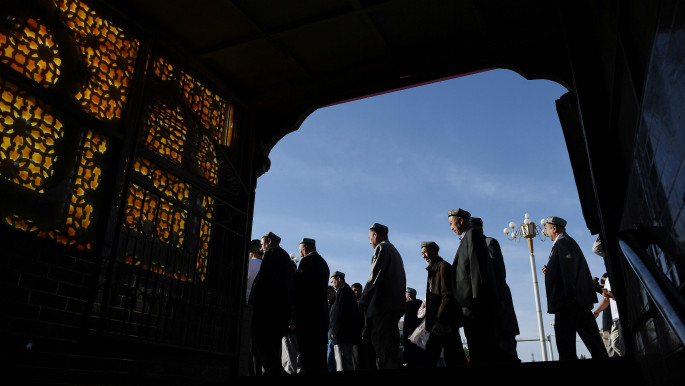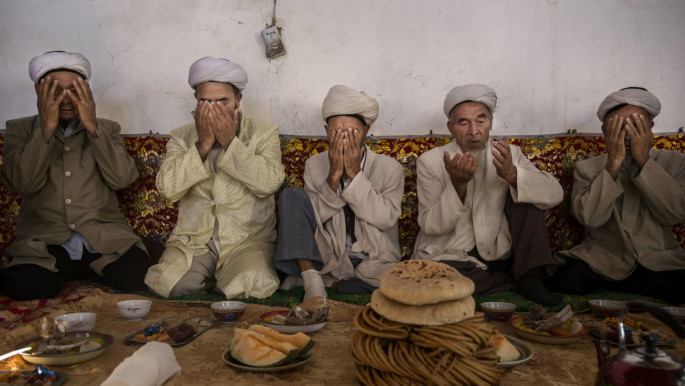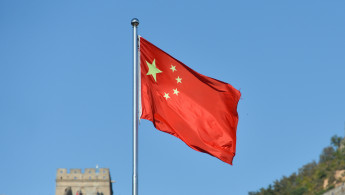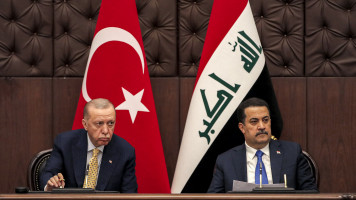'We are sending a message to Beijing': US slaps sanctions on Chinese officials over Uighurs
The bill was passed on December 3 and would see that Chinese officials involved in Uighur detention be held "accountable for gross human rights violations… through the application of United States sanctions authorities, and voice concerns regarding such violations in interactions with the Government of the People's Republic of China."
"We are sending a message to Beijing. America is watching and we will not stand silent," said House Speaker Nancy Pelosi.
Congress unanimously approved the measure by a vote of 407 to 1, in addition to the Uighur Human Rights Policy Act, which was passed by the US Senate in September; the House's bill will still need the Senate's approval before it reaches President Donald Trump's desk for his signature.
The US imposed visa restrictions on officials and nearly 30 Chinese organisations linked to Uighur human rights abuses in October.
The UIGHUR Act could lead in the banning of those officials from the United States, along with the seizure of their US-based assets. One such official would be Xinjiang's Regional Party Chief, Chen Quanguo, who is likely responsible for overseeing surveillance and detention programming in the region.
According to Hu Xijin, editor-in-chief of China's Global Times newspaper (sometimes dubbed 'China's Fox News'), Beijing may consequently restrict US officials to visit Xinjiang.
 |
Although journalists, activists and members of the Uighur diaspora alike have been raising awareness over Uighur imprisonment for years, the US did not take consider tougher sanctions until recently |  |
China has accused the US of smearing the "fight against extremism and terrorism," which has been the country's go-to line for defending Uighur detention camps. Beijing refers to them as "re-education camps" meant to instill "rehabilitation and redemption" in an effort to "fight religious extremism" and provide "students" with vocational training.
 |
|
| Read also: China's Uighurs: A genocide in the making |
"The core of the Xinjiang issue is not human rights, ethnic minority or religion. Instead, the core is anti-terrorism and anti-separatism… We warn the US that Xinjiang is China's internal affair and has no room for foreign forces," said Chinese Foreign Ministry Spokeswoman Hua Chunying.
As US foreign intervention has led to the countless displacement and deaths of Muslims worldwide, some are calling out the country's hypocritical role as global watchdog – a role that Chinese officials find all-too-familiar as it applies to pro-American sentiments in Hong Kong.
Just as with the UIGHUR Act, politicians from across party lines vocalised their support for Hong Kong protestors. House Speaker Pelosi herself met with some Hong Kong activists in September, with a house-approved, bipartisan-backed bill in her pocket that would allow US-imposed economic sanctions and travel bans on Chinese officials in Hong Kong.
On November 27, Trump signed the bill, titled the Hong Kong Human Rights and Democracy Act, with a swift counter-response from Beijing. Not only did the Chinese government condemn the bill and accuse the US of supporting dissent, but also banned all US military visits to Hong Kong.
In the past few months, both China and the US have imposed billions of dollars of tariffs on goods from both countries. The UIGHUR Act would see an added layer of economic restrictions between the two global actors.
The move has created much trepidation for world markets, particularly for countries that are either tied to China via global supply chains and export agreements or have emerging markets dependent on Chinese investments. Per the United States' sanctions, China can expect bans on sales of American goods to agents in Xinjiang.
 |
Per the United States' sanctions, China can expect bans on sales of American goods to agents in Xinjiang |  |
Both countries planned on settling the yearlong trade war in a deal in December. On the same day as the UIGHUR Act was passed, Trump stated that there is no definitive deadline on a trade deal with China and suggested that a deal would have to wait until after the November 2020 presidential election.
Although journalists, activists and members of the Uighur diaspora alike have been raising awareness over Uighur imprisonment for years, the US did not take consider tougher sanctions until recently, when 24 pages of documents confirming the mass data collection and subsequent detainment measures upheld in Xinjiang were leaked.
 |
| Read also: Explainer: China's persecution of Uighur Muslims |
One subset of the documents include a manual, referred to comprehensively as a "telegram," that was obtained and released by the International Consortium of Investigative Journalists.
The guidelines in the manual urge civil servants working in Xinjiang to "Strictly implement the 24-hour duty system" and to "…discover and dispose of behavioural violations… and evaluate and resolve students' ideological problems and abnormal emotions at all times."
The Consortium's findings note that these instructions would have been approved by the top Chinese government official in Xinjiang: Chen Quangoo.
We know now that the camps expanded rapidly after Chen's 2016 appointment and that President Xi Jinping incited the 2014 "Strike Hard Campaign" following terrorist acts by Uighur separatists in a series of private speeches to Chinese officials.
The documents also substantiate the claim that the United States' presence in Afghanistan and responses to the September 11 attacks proved to be a model for Uighur detainment.
In Washington, Senate proponents of the UIGHUR Act are eager to pass the House-altered version of the original legislation as Congress is set for recess in mid-December and won't adjourn until late January 2020.
Hind Berji is a freelance writer with experience in arts reviews and sociopolitical criticism.
Follow her on Twitter: @HindBerji



